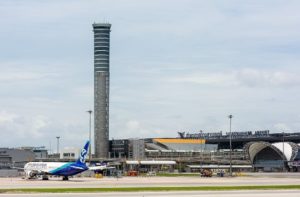
ACI issued the call at the recent 2018 World Aviation Forum, asking governments and regulators to facilitate appropriate private investment in airports “since it has proven to help deliver strong traffic growth, significant increase in capital expenditure, and improvement in service quality in airports around the world.”
ACI World director general Angela Gittens said investment in airport infrastructure is critical to the global economy and global connectivity, and if governments are unable to make the required levels of investment, other sources must be tapped to accommodate traffic growth.
She urged that privatization be considered as a valid option to address shortcoming in existing airport infrastructure and to invest in future capacity and service quality improvement, as traffic is expected to be above 22 billion passengers by 2040, growing at an overall rate of 4.5% per year on average.
ACI said private investment—when the legal framework is clear, and investor-operators are able to exercise business innovations to try to make returns on the risks they take—has been successfully used to contribute to community and national economic vitality and enhance the passenger experience.
“Given the significant infrastructure challenges, to meet growing demand, the injection of private investment has been a successful option for airports in Australia, Mexico, Brazil, Republic of Congo, Italy and Malaysia,” Gittens said.
“With global passenger numbers forecast to double by 2030, stakeholders in the aviation industry are in broad agreement that investment in airport infrastructure is critical to the global economy and global connectivity especially in achieving the United Nations’ Sustainable Development Goals (SDGs),” she added.
A range of objectives may lead to consider privatization and this policy option is becoming more common. Of the top 100 airports for passenger traffic, the number with private sector participation grew to 51 in 2017, five more than in 2016.
“Of the top 500 airports in 2017, 39% had private sector participation. Single airports, airport systems and airport networks provide significant value creation for airlines, passengers and the communities they serve. Economies of scope and scale enable airport networks to generate significant efficiencies in terms of costs and charges to airlines, while providing customers with a high quality of service,” Gittens said.
ACI is calling governments and policymakers to take urgent action and to build a favorable investment climate to support the development of aviation infrastructure and communities, she further said.
Photo: Nutjaru









